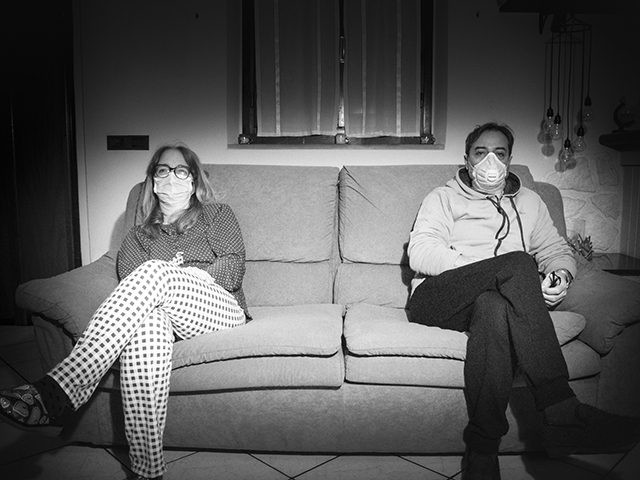The vast majority of Americans, 304 million, reportedly reside in U.S. states and localities that had implemented some variation of the “stay at home” order for non-essential workers as of Friday evening in a bid to stem the spread of the deadly novel coronavirus.
That means that states and localities are telling more than nine out of every ten Americans, or more than 90 percent of the U.S. population of 329.5 million, to stay home.
On Friday evening, an article updated continuously by the New York Times to reflect the changes in the quarantine orders implemented across the United States noted:
The directives to keep people at home, which began in California in mid-March, have quickly swept the nation.By Friday, a significant majority of states, the Navajo Nation, and many cities and counties had instructed residents to stay at home in a desperate race to stunt the spread of the coronavirus. This means at least 304 million people in at least 39 states, 14 counties, 12 cities, the District of Columbia, and Puerto Rico are being urged to stay home.
All of the top five hardest-hit states (as of Friday) — New York, New Jersey, California, Michigan, and Lousiana — have implemented stay at home orders.
This week, Dr. Anthony Fauci, the director of the U.S. National Institute of Allergy and Infectious Diseases and member of the White House Coronavirus Taskforce, came out in support of a national stay at home order.
Referring to such a rule during a town hall on CNN on Thursday, Dr. Fauci said:
I don’t understand why that’s not happening. … You know, the tension between federally mandated versus state’s rights to do what they want is something I don’t want to get into. But if you look at what’s going on in this country, I just don’t understand why we’re not doing that. We really should be.
The coronavirus illness (COVID-19) has spread to all 50 states, the nation’s capital, and four territories including Puerto Rico, the U.S. Centers for Disease Control and Prevention (CDC) reported, noting that it had infected at least 239,279 people and killed 5,443 individuals as of Friday.
Some U.S. jurisdictions have announced that they are ready to impose legal penalties for residents who flout the anti-coronavirus restrictions.
Consequences for those who ignore the rules in the U.S. currently include fines and jail time.
The U.S. federal government has issued social distancing and other guidelines to combat the viral outbreak afflicting the country but stopped short of implementing a nationwide quarantine, leaving it up to the states and localities to implement and enforce restrictions.
As a result, there is currently a patchwork of local and state ordinances that use different terms, including “shelter in place,” “stay at home,” or “safer at home.”
Coronavirus is affecting different areas across the United States and the world differently.
Under some variety of a “shelter in place” or “safer at home” directive, non-essential workers can still go out of their home for necessities such as groceries, medical assistance, or to get fresh air.

COMMENTS
Please let us know if you're having issues with commenting.